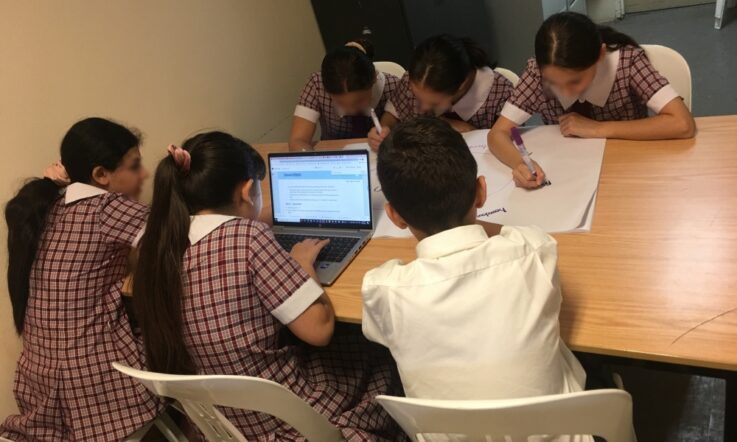Students have a diverse range of personal and contextual factors that influence their access to and achievement in their education. A major new global study bringing together more than 300 experts in neuroscience, technology education, philosophy, data and evidence, and sustainability calls for a re-evaluation of education systems to promote personalised learning approaches.
The UNESCO Mahatma Gandhi Institute of Education for Peace and Sustainable Development (MGIEP) says personalised education is an entitlement and a human right for every learner. Its International Science and Evidence Based Education Assessment (ISEE) report took just over two years to complete and totals 1000 pages.
The report highlights the need for education policies that focus on individual learning progress and potential, rather than merit-based assessment and benchmarking. It covers a range of areas including education and human flourishing, the role of context in education, the learning experience, and the role of data and evidence in policy decision making.
‘The overall goal of the ISEE Assessment is to pool multi-disciplinary expertise on educational systems and reforms from a range of stakeholders in an open and inclusive manner, and to undertake a scientifically robust and evidence based assessment that can inform education policy-making at all levels and on all scales,’ the UNESCO MGIEP website explains.
Released in the context of the COVID-19 pandemic, climate change and ongoing conflicts that have threatened education progress, such as the Russian invasion of Ukraine, the report found that 37 per cent of primary school-aged refugee children are now out of school, with only 24 per cent able to access secondary education. The ISEE aims to reimagine the future of education, to build more resilient and sustainable education systems amongst the current crises.
There are seven key messages emphasised in the report:
- Every learner learns differently, and is influenced by a complex combination of internal factors
- A whole-brain learner-centric approach towards learning strengthens the interconnectedness of cognition and the social-emotional domains
- Context heavily influences the design and implementation of an education for flourishing but over time, education for flourishing will also influence context
- Learner agency should be promoted by shifting from passive to active learning.
- Potentiality instead of meritocracy should be used to evaluate the success of learners.
- Investment in education is needed but must be directed to a whole-brain learner-centric system designed and implemented to be equitable and inclusive.
- Multidisciplinary dialogue, research and collaboration is needed to ensure different perspectives, understanding and context to guide education and learning.
The report also advocates for the reorganisation of education funding to redesign curricula, pedagogies, and research and learning assessments. It outlines a number of key policy recommendations, including reorganising education and research funding, investing in mother-tongue instruction to maximise the learning potential of children from diverse backgrounds, introducing early universal screening, and supporting school-community partnerships.
In a joint statement, the two Co-Chairs of the ISEE Assessment Report, Anantha Duraiappah and Nienke van Atteveldt, argue, ‘Over 80 per cent of teachers, parents and students want exactly what personalised education – the holy grail of education – can offer. This is now possible with the support of digital pedagogy and ethical artificial intelligence.
‘We can make sure that each learner gets the quality education they are entitled to, work at their own pace and be their own benchmark to maximize their potentiality for leading a flourishing life.’
References
Duraiappah, A.K, Atteveldt, N.M., Buil, J.M., Singh, K. & Wu, R. (2021). Summary for Decision Makers, Reimagining Education: The International Science and Evidence based Education Assessment. UNESCO MGIEP. https://mgiep.unesco.org/iseeareport
With colleagues, discuss the key messages outlined in the report. How does your school support personalised learning? How can these key messages inform curriculum planning and delivery?



